Deploy Bold BI Azure web app using the ARM template
To deploy the Bold BI Azure web app using the ARM template, follow these steps:
-
Log in to the Azure Portal.
-
Click on New in the left menu.
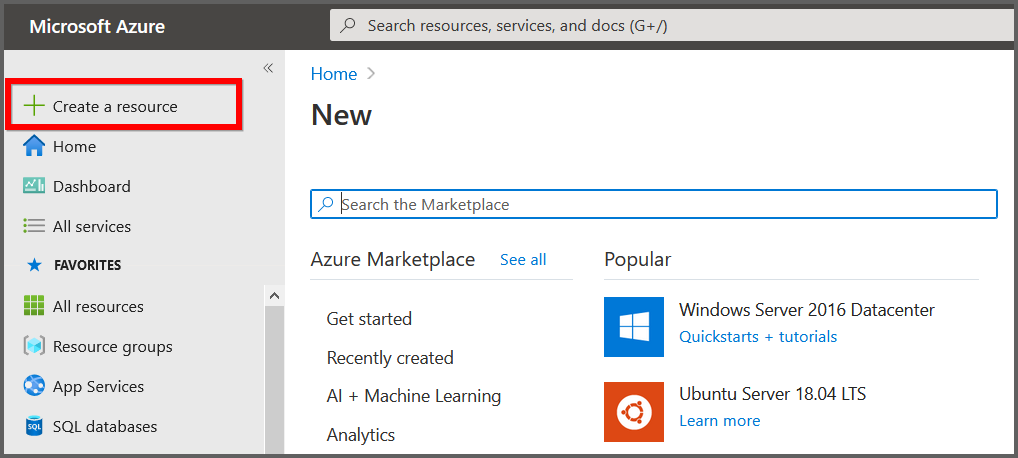
-
Search for Template deployment in the marketplace and select it.
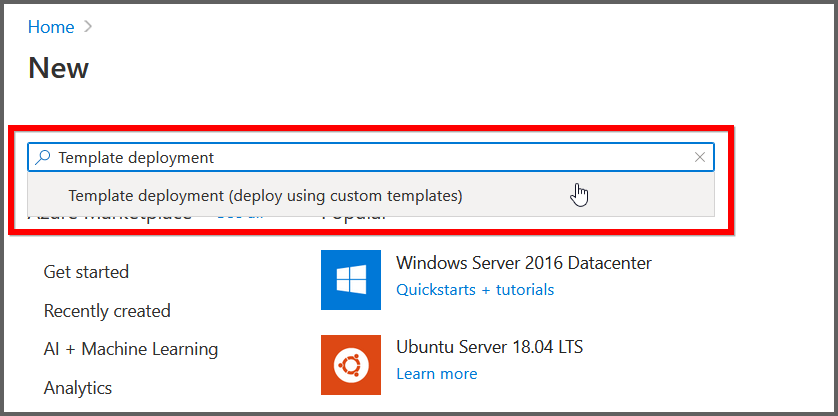
-
Click on create.
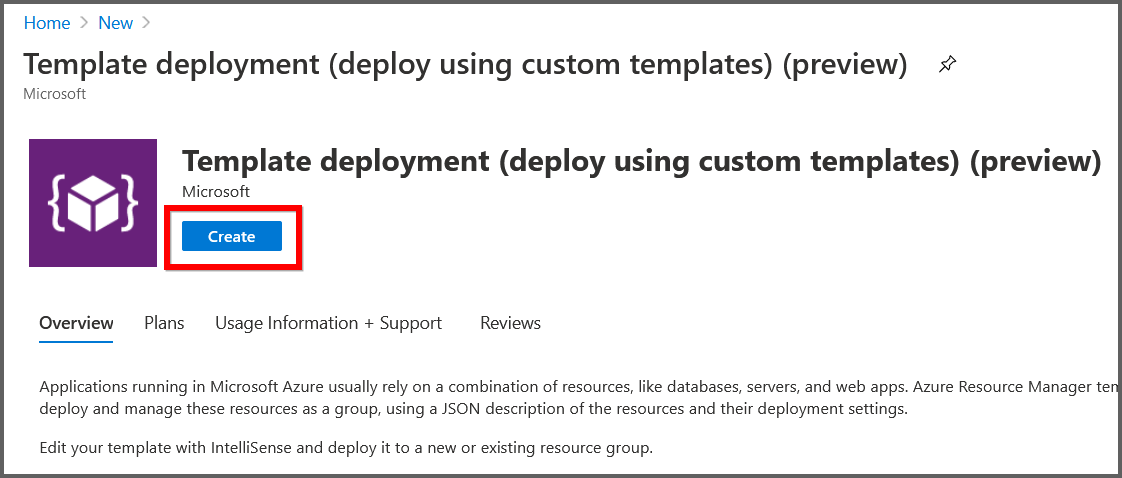
-
In the Custom deployment window, select Build your own template in the editor.
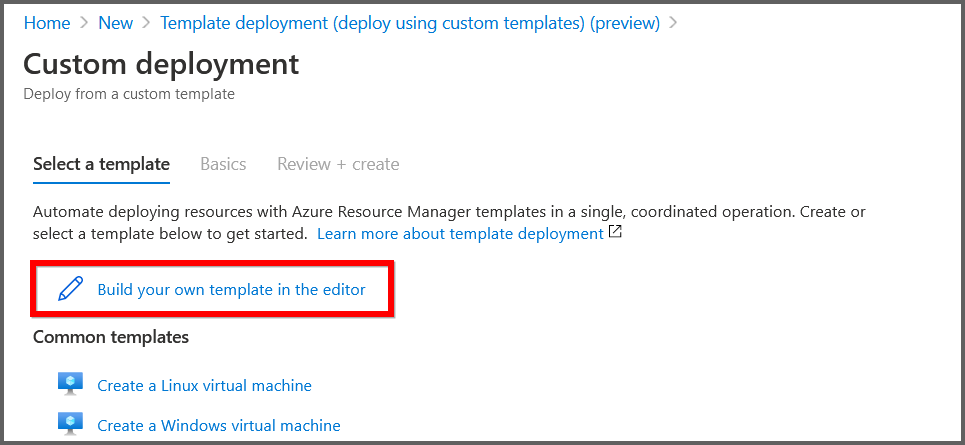
-
Download the ARM template file.
-
Copy the contents of the template file and replace them in the Edit template window. Then save.
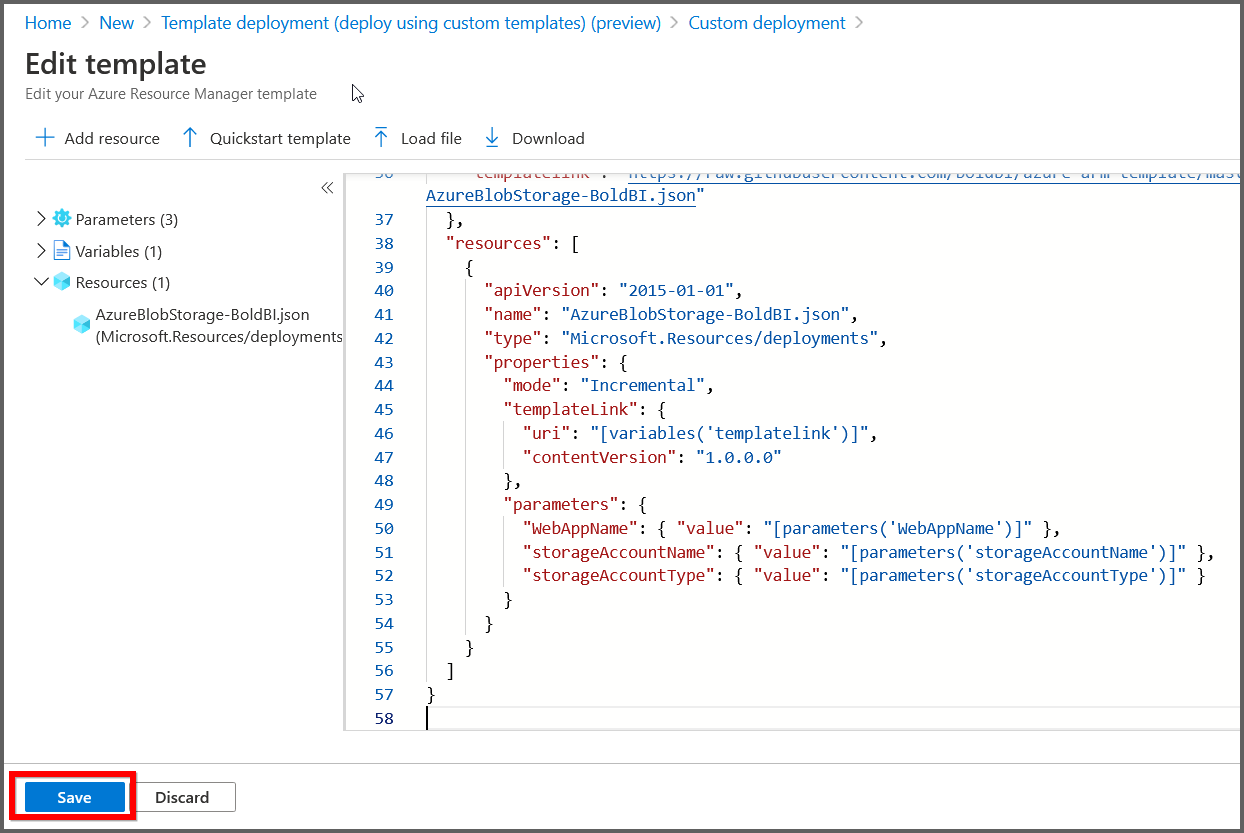
-
Fill out the form with the following instructions to complete the deployment:
Subscription: Choose the Azure subscription you have. Learn more about subscriptions.
Resource group: Azure uses resource groups to logically group your resources, such as web apps, storage accounts, and networks. Learn more about resource groups here.
Location: Choose the location where you plan to deploy your app. Our recommended location is “East US.”
Storage Type: Bold BI Web App stores resources in either File storage or Blob storage. Choose a storage type for storing the files generated by the Report Server. View the complete list of files generated by the Report Server here. (For an upgrade, select File storage).
Web App name: This is the unique name you want for the Bold BI App in the URL. If the name is already taken, the deployment process will fail and you will need to choose another name.
Storage account name: This is optional if you have chosen File storage, but mandatory for Blob storage. The name must be unique, just like the Web App name. Learn more about storage accounts.
Storage account type: This is optional for File storage, but mandatory for Blob storage. Learn more about storage account types.
Click the agreement checkbox and click purchase to deploy the Bold BI web app.
-
The deployment of the Bold BI Azure App service (web app) will begin, and you can track the progress of the deployment by looking for a green check mark at each successful stage.
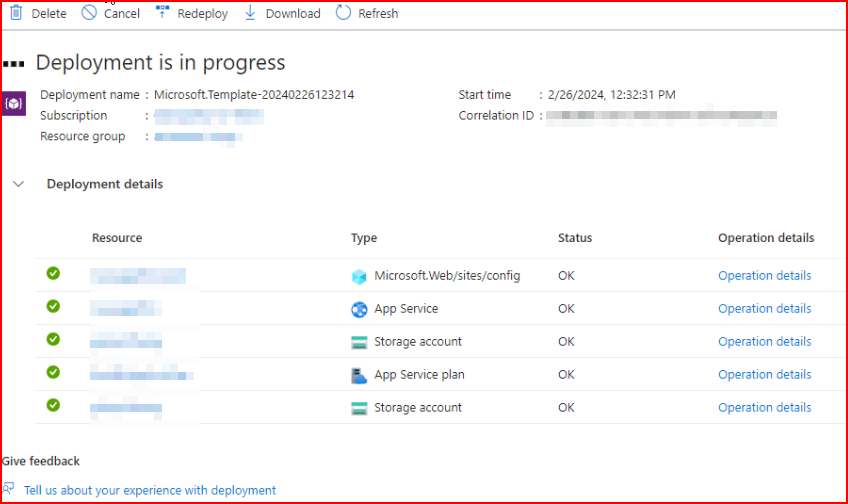
-
If the deployment of Bold BI is successfully completed, proceed to Step 12.
-
If deployment fails, check the error details and select the Redeploy option to deploy Bold BI again (refer to Step 8 to fill in the details). Ensure successful deployment with Step 9.
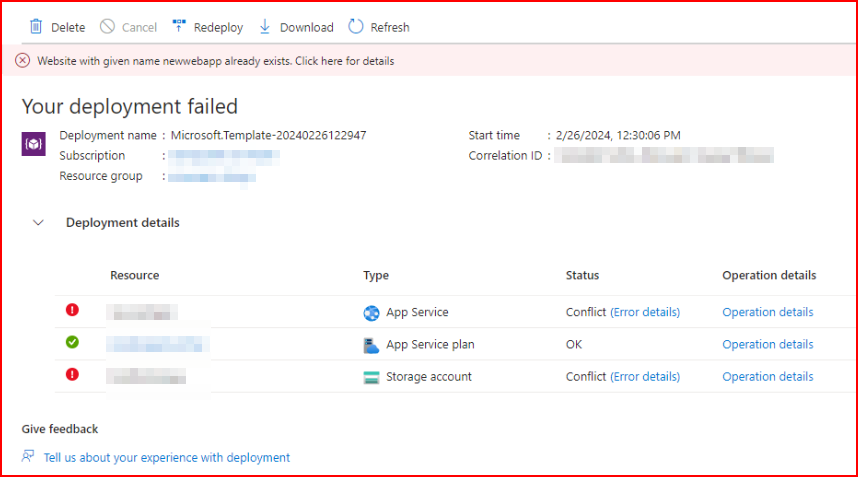
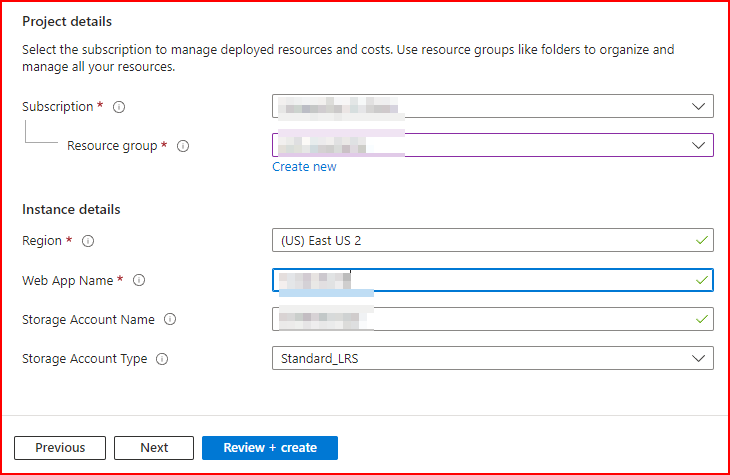
NOTE:
1. When redeploying, ensure that you provide a unique Web App name and Storage Account name.
2. If the failed App Service/Storage account/App Service Plan is still present in the resource group, please remove it before proceeding with redeployment. -
Click on Go to resource group. Then, select App Service.
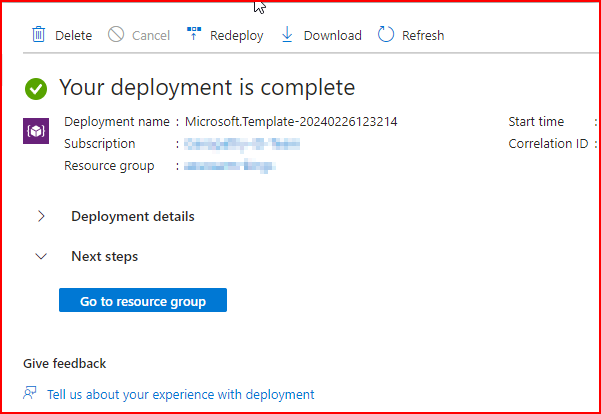

-
On the overview page, copy the Default Domain and paste the URL into your browser. Wait for some time for it to load completely before proceeding with the Bold BI application startup.
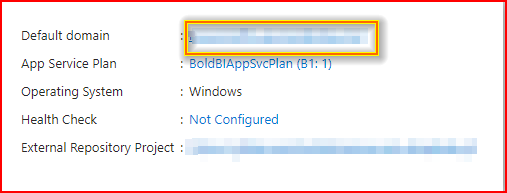
-
An app service plan has been created for the web app, which will default to Basic – B1. You can learn more about app service plans. The Bold BI web app does not support Free or Shared app service plans. Instead, it supports Basic, Standard, and Premium App Service plans in Azure. The Basic plan is the minimum recommended App Service plan for running the application. For improved performance, you can scale up the App Service plan from Basic to Standard or Premium plans. Below, you can find documentation links on how to scale up and scale out the App Service plan.